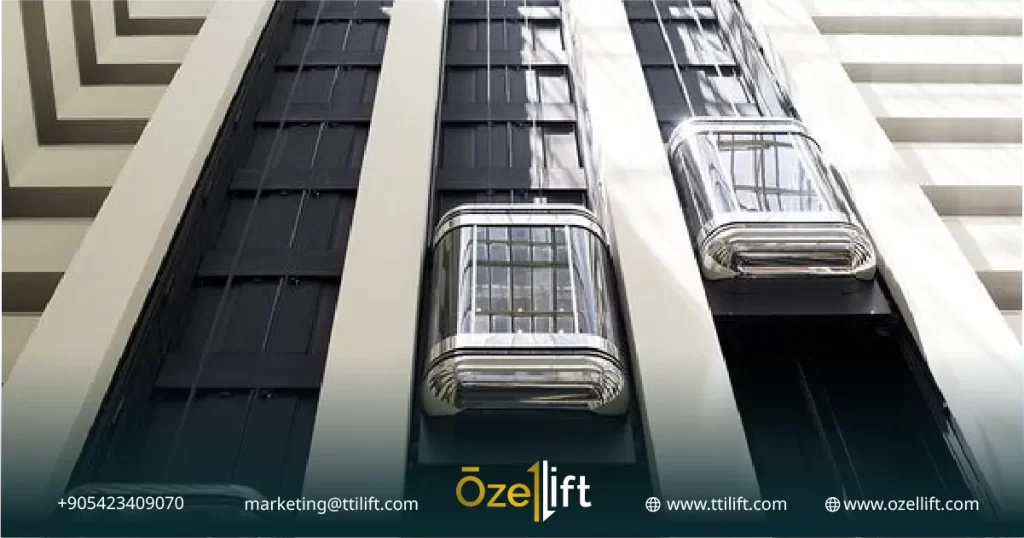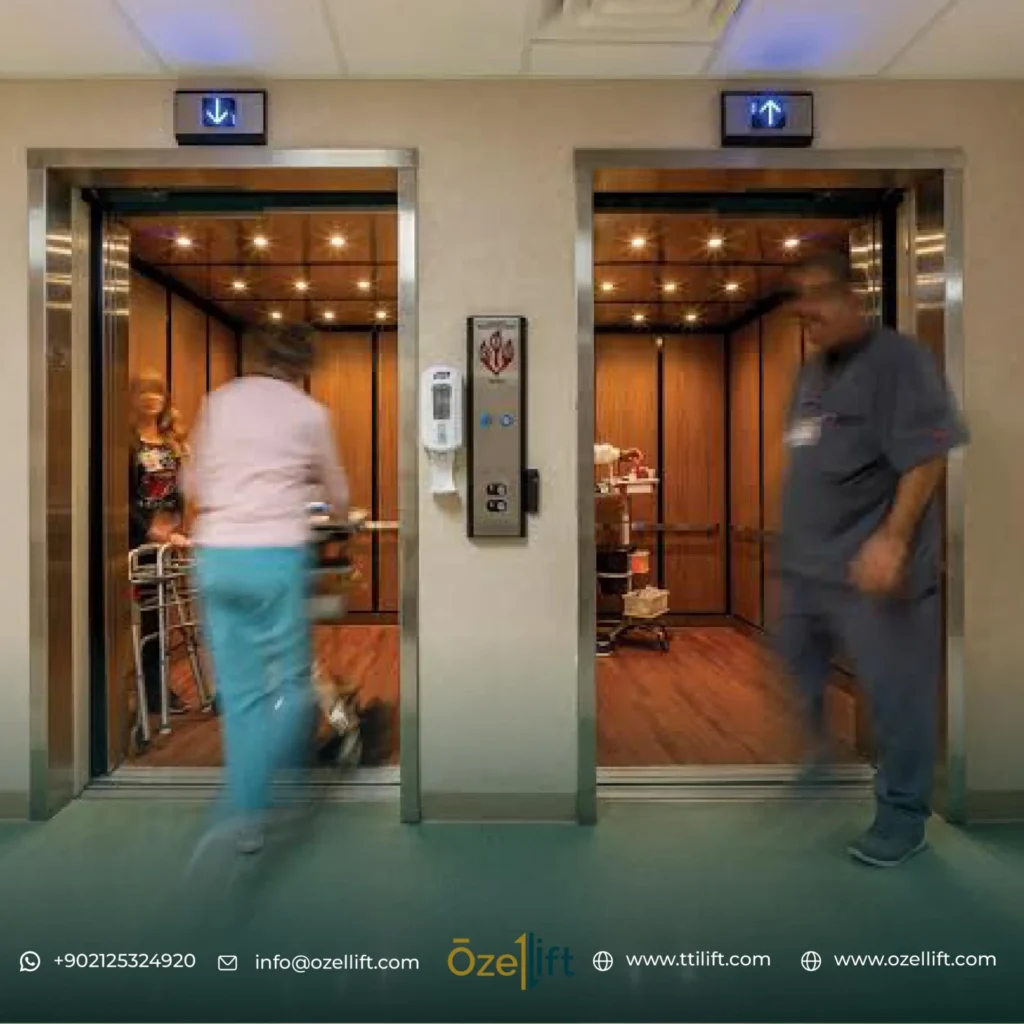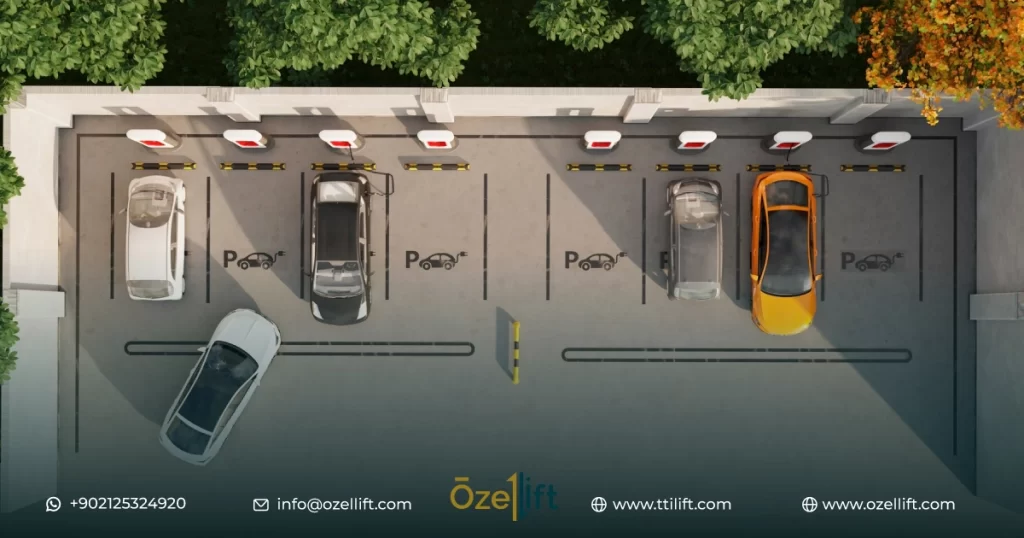freight elevator vs passenger elevator can be a complex comparison, especially when considering the specific needs of your building.
Both types of elevators serve essential purposes, but they differ significantly in terms of capacity, design, and intended use.
In this article, we will delve into the key distinctions between freight elevators and passenger elevators, helping you make an informed choice for your project. By understanding the unique characteristics of each type, you can select the elevator that best suits your building’s requirements and provides a safe, efficient, and comfortable experience for occupants.
freight elevator vs passenger elevator – What is a Freight Elevator?
A freight elevator is a specialized type of elevator designed to transport goods and materials, rather than people.
They are commonly found in industrial, commercial, and warehouse settings where heavy or bulky items need to be moved efficiently between floors. Freight elevators are built to withstand the rigors of moving heavy loads and are typically equipped with features such as larger doors, higher load capacities, and reinforced construction.
freight elevator vs passenger elevator – What is a Passenger Elevator?
A passenger elevator is a type of elevator designed to transport people between floors in buildings. They are commonly found in residential, commercial, and public buildings and are typically equipped with features that enhance passenger comfort and safety, such as car interiors, lighting, and ventilation systems. Passenger elevators are designed to meet specific safety standards and regulations to ensure the well-being of passengers.
Key Differences Between Freight and Passenger Elevators
Let’s delve in the main differences between Freight and Passenger Elevators
Capacity and Load Weight
Freight elevators: Designed to carry heavy loads, often up to several thousand pounds. They are commonly used in industrial settings to transport machinery, materials, and equipment.
Passenger elevators: Primarily designed to transport people, with load capacities typically ranging from a few hundred to a few thousand pounds. They are found in residential, commercial, and public buildings.
Door Size and Configuration
reight elevators: Have larger, wider doors to accommodate bulky items and machinery.
They may also have different door configurations, such as sliding or vertical-opening doors.
Passenger elevators: Typically have smaller, more standard-sized doors that are designed for passenger traffic.
Interior Design and Features
Freight elevators: Have a more utilitarian interior, often with bare walls and a reinforced floor.
They may have additional features like safety gates or load sensors.
Passenger elevators: Have a more aesthetically pleasing interior, often with finished walls, lighting, and ventilation systems. They may also have features like mirrors, advertisements, or emergency call buttons.
Safety Regulations and Standards
Freight elevators: Subject to specific safety regulations and standards that address the transport of heavy loads and potential hazards.
Passenger elevators: Adhere to strict safety regulations and standards that prioritize passenger safety and comfort.
Contact us now if you need any information about Freight and Passenger Elevators.
freight elevator vs passenger elevator – When to Choose a Freight Elevator
A freight elevator is the ideal choice for buildings that require the transportation of heavy or bulky items. Here are some scenarios where a freight elevator is particularly suitable:
- Industrial facilities: Factories, warehouses, and manufacturing plants often need to move large machinery, raw materials, and finished products between floors. A freight elevator can handle these heavy loads efficiently.
- Commercial buildings: Retail stores, restaurants, and hotels may need to transport large deliveries or equipment to different floors. A freight elevator can facilitate these tasks.
- Construction sites: Freight elevators are essential for moving construction materials, tools, and equipment to various levels of a building under construction.
- Storage facilities: Warehouses, storage units, and self-storage facilities often require a reliable way to transport items between floors. A freight elevator is well-suited for this purpose.
If your building has a need for transporting heavy or large items, a freight elevator is likely the best option to meet your requirements.
Know more about
Hydraulic Elevator vs. Traction Elevator
Geared Traction Elevator vs Gearless Traction Elevator
freight elevator vs passenger elevator – When to Choose a Passenger Elevator
A passenger elevator is the appropriate choice for buildings that primarily need to transport people between floors. Here are some scenarios where a passenger elevator is suitable:
- Residential buildings: Apartments, condominiums, and high-rise buildings often rely on passenger elevators to provide convenient access to different floors for residents.
- Commercial buildings: Offices, retail stores, and restaurants typically use passenger elevators to transport customers, employees, and visitors.
- Public buildings: Hotels, hospitals, and government buildings often have passenger elevators to accommodate the needs of their occupants and visitors.
- Accessibility: Passenger elevators are essential for providing access to buildings for people with disabilities, as they are designed to meet specific accessibility requirements.
If your building primarily needs to transport people and does not require the handling of heavy loads, a passenger elevator is the most suitable option.
In conclusion, the choice between a freight elevator and a passenger elevator depends on the specific needs of your building. By carefully considering factors such as capacity, door size, interior features, and safety regulations, you can select the elevator that best suits your requirements.
If you’re ready to explore your elevator options, contact Ozellift today. Our team of experts can provide guidance, assist with selection, and ensure a smooth installation process.
What is the main difference between a freight elevator and a passenger elevator?
Freight elevators are designed to transport goods and materials, while passenger elevators are designed to transport people.
When should I choose a freight elevator?
Choose a freight elevator if you need to transport heavy or bulky items, such as machinery, equipment, or large deliveries.
When should I choose a passenger elevator?
Choose a passenger elevator if you primarily need to transport people between floors in your building.
Are there any safety regulations for freight elevators?
Yes, freight elevators are subject to specific safety regulations that address the transport of heavy loads and potential hazards.
Can a freight elevator be used to transport both people and goods?
While it’s possible to use a freight elevator to transport people, it’s not recommended as they are not designed for passenger comfort or safety.
What factors should I consider when choosing between a freight and passenger elevator?
Consider factors such as capacity, door size, interior features, safety regulations, and your building’s specific needs.



